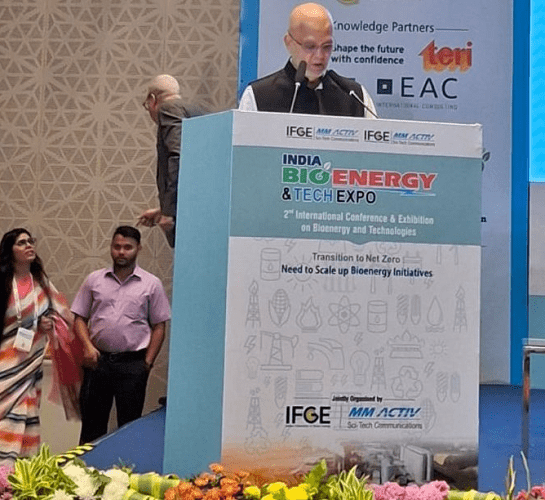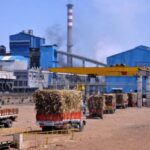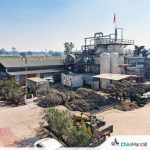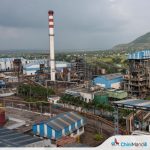Addressing the India BioEnergy and Tech Expo, Dr. Pramod Chaudhari, President, Indian Federation of Green Energy (IFGE), said that the mission of developing a circular bioeconomy is no longer a distant dream but becoming a tangible reality, with a sense of urgency and purpose.
“The need for energy self-reliance is more pressing than ever. Self-sufficient energy systems are crucial for our national security and economic stability amid geopolitical situations and trade negotiations. This is where bioenergy holds a unique advantage”, he said.
He lauded the achievements of the past year and said that reaching the E20 blending milestone before schedule is a significant achievement, a landmark that deserves applause for the Government of India, IFGE, and every stakeholder who contributed to this mission.
Highlighting the achievements in the 2G ethanol sector, he said, “India’s first 2G ethanol plant at IOCL, Panipat, is under capacity validation, which is expected to reach rated capacity by year’s end. Hon PM Modi ji also inaugurated India’s second 2G plant at Numaligarh based on bamboo feedstock. In fact, IFGE was instrumental in bringing Bamboo under the umbrella of the grass category from earlier forest crop classification to use it as a feedstock”.
He spoke about India’s first national highway stretch laid using Biobitumen. “Bio-bitumen will allow reduction of bitumen imports, curbing GHG emissions by about 70%. Inauguration of a 100% Bio-IBA based static genset by Shri Gadkari ji during World Biofuel Day celebration at Praj Bioverse event, showcased biofuels application beyond mobility. The prototypes of flex-fuel vehicles, including four-wheelers from Toyota-Kirloskar Motor and two-wheeler from Hero Motocorp are not just concepts anymore, but we have future-ready prototypes now”.
Chaudhuri commented about the social media campaign against the ethanol blending programme, “Post-E20, we are seeing a concerning trend where those without deep subject matter expertise are creating confusion and anxiety with incomplete or misleading information, especially on social media. This has to stop”.
He said that at a stakeholder meeting last month recommended that the government reaffirm its commitment beyond E20, in consultation with the auto sector. “On this forum, I would like to request the government to re-emphasise India’s unwavering and unstoppable commitment to bioenergy. This clarity is essential to maintain momentum and investor confidence. I would also like to suggest that to stimulate the flex-fuel vehicle market, we may need to explore policy measures that make flex-fuel vehicles at par with EVs through tax incentives and CAFE norms,” he added.
Chaudhuri said that India’s biggest strength lies in its abundant feedstock and homegrown biotechnology expertise, which makes India a true emerging leader to drive global biofuel journey ahead. “The establishment of the Global Biofuels Alliance office in India is a proud moment. IFGE will actively participate in this global movement, and I urge stakeholders to join and contribute. India is also poised to become a hub for low-carbon ethanol exports, with technologies and certifications aligned to global standards like CORSIA and Life Cycle Assessment (LCA),” he said.
He concluded by saying that the bioeconomy is not a sector-it is a national mission. It touches agriculture, industry, environment, and energy. It empowers rural India, creates jobs, saves foreign exchange, and helps us meet our climate goals. The Government of India has always acted with determination to safeguard national interests and shield the farming community, which is central to our economy and society.


















